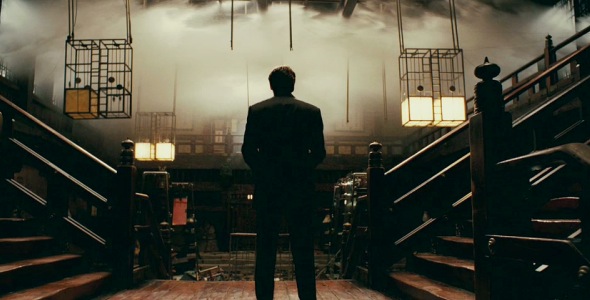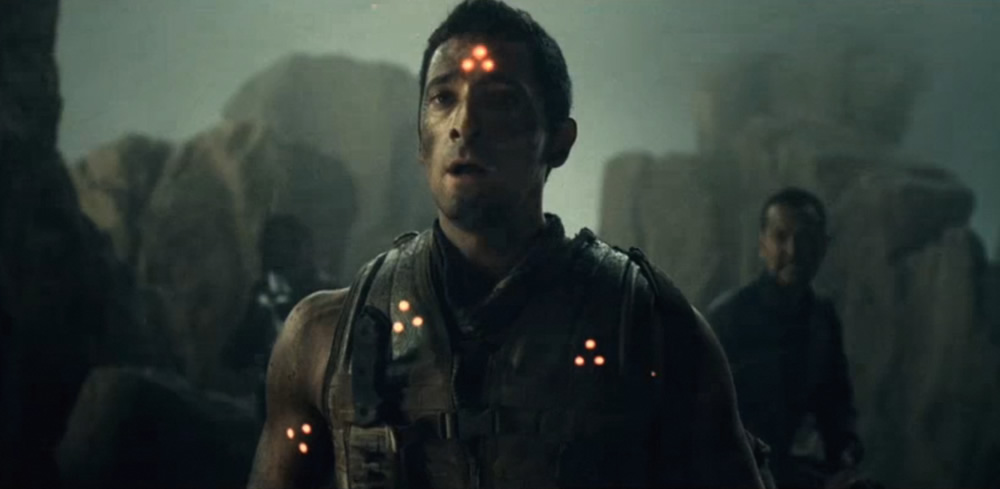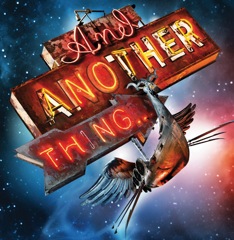
It seems the Nolan hype machine, made up of his recently joined comic book fanboys who believe they have reached a higher ground of cinema through his unique artistic power, is still in full force. I have already read and heard many of them say that Inception is “the greatest film.” These were the same people who said that Nolan’s dreary 2009 The Dark Knight was also “the greatest film.” I must disagree with their sentiment.
Just because a director cuts predictable corners and makes us think doesn’t mean his films deserve top ten ratings. Personally, I felt that Dark Knight was a messy film with an unclear message. It pulsed with energy, was unpredictable and challenging, but it was also confusingly plotted and couldn’t seem to focus on any one idea. It was joyless and had a deplorably melodramatic ending. Nolan’s earlier Batman Begins will always be a greater film in my mind, due to its far more engaging plotting and beautiful symbolism. Don’t get me wrong, Nolan is a great director and Inception is a great film. It would just be greater if people saw it for what it is and quit worshiping it as “the best.”
On its surface, Inception is a science fiction heist film with Matrix overtones. That it trumps the The Matrix in almost every way is only the first of many feathers in its cap. Instead of edgy fight scenes, we get acrobatic air dances and rushed wanderings through haunting structures and empty spaces. In the dream worlds of Inception, death is a mere annoyance and isn’t as dangerous as mental breakdown. The stakes are high, but hard to comprehend.
As the film progresses and the stakes are raised, the sci-fi dream heist becomes a sub-plot amidst a deeper struggle. Two of the main characters come face to face with their deeply held senses of loss, and how they choose to deal with these losses is the center of the film’s message: to have peace in life, one must let go. This letting go involves graceful forgiveness, both to self and others, but at its core I find an unsatisfying denial of truth. Again and again I find this theme in Hollywood films. When someone has no hope of an after-life, the reality of death and the loss it brings is truly the most terrifying thing. The characters of Inception attempt to block this reality with unreality, but it’s impossible. The only answer is found in facing it, and then moving on, which they might, or might not do.
I found an interesting parallel in Inception to Lewis’s novel The Silver Chair. As the hero of the film descends deeper into the dreamworld, he encounters an enchanting woman who begs him to stay in what she calls the “real world,” just as the Green Lady in Silver Chair lies to the children, telling them that their world is only a dream. Satan tries to tell us this every day, that the kingdom of Christ is a fairy tale, and only his dark kingdom is real. I find it extremely sad that such a perceptive filmmaker as Nolan can represent this deceit in a film, but can’t bring it to its ultimate conclusion, nor apply it to his own life. Such is the tempter’s power.
Like Dark Knight, and Nolan’s earlier The Prestige, Inception isn’t as fun as it is engaging. The audience I sat with gasped and tried to breath through its pounding, non-stop scenes of mysterious, tense action and psychological conflict. The ending is both relieving and startling. It left us cheering. Though definitely not “The best film,” Christopher Nolan has once again made a solid one.




 I immensely enjoyed and was immensely annoyed by Eoin Colfer’s new book, “And Another Thing,” his reverent yet irreverent love offering to Douglas Adams’s Hitchhiker’s Guide To The Galaxy series. I’ve always respected Colfer as a writer. His ideas are fresh and his stories are lean and fast paced, never wasting time with heavy exposition or overly detailed descriptions. That’s why I was so surprised by the slow, almost dragging pace of this, his first book for adults. There were moments when I wanted to skip ahead a few pages–especially when he dragged out the long and often pointless Guide entries.
I immensely enjoyed and was immensely annoyed by Eoin Colfer’s new book, “And Another Thing,” his reverent yet irreverent love offering to Douglas Adams’s Hitchhiker’s Guide To The Galaxy series. I’ve always respected Colfer as a writer. His ideas are fresh and his stories are lean and fast paced, never wasting time with heavy exposition or overly detailed descriptions. That’s why I was so surprised by the slow, almost dragging pace of this, his first book for adults. There were moments when I wanted to skip ahead a few pages–especially when he dragged out the long and often pointless Guide entries.